Digital advertising has seen significant transformation in the last ten years, particularly with programmatic advertisements leading the way in automating both purchasing and selling. Ad fraud, a lack of transparency, and intricate ad monitoring systems are just a few of the issues that accompany this rapid expansion and have turned into significant roadblocks that waste billions of dollars in advertising annually. Ad tracking is just too complicated. With their creative approaches to boosting security and trust, smart contracts have become a useful tool.
Despite the fact that many advertisers still suffer from a lack of confidence, these smart contracts and blockchain technology demonstrate their full potential by permanently altering the landscape of digital advertising. Many of the fundamental issues facing the industry will be resolved if these technologies automate advertising transactions into transparent, unchangeable platforms. In addition to enhancing current technology, the use of smart contracts on programmatic advertising platforms spurs innovation in marketing and more reliable, moral, and ethical solutions.
Understanding Programmatic Advertisement in the Modern Era
The Foundation of Automated Ad Buying
Programmatic advertising has completely changed how brands place digital ads, making the process faster, smarter, and more data-driven. Instead of manual negotiations or fixed ad placements, automated systems now handle everything from buying to displaying ads using real-time bidding (RTB) and advanced algorithms. Within milliseconds of someone opening a webpage or app, the system bids for ad space tailored to that user. The result? Highly targeted ads that adapt on the fly, driving better performance and reach.
Behind the scenes, though, the programmatic ecosystem is a maze of tech partners, demand-side platforms (DSPs), supply-side platforms (SSPs), ad exchanges, and data management platforms (DMPs) all working together to deliver that single ad impression. While this network makes precision marketing possible, it also opens the door to inefficiencies and ad fraud. That’s where smart contracts show real promise: by bringing automation with accountability.
Current Market Dynamics and Challenges
Today’s programmatic advertising market is growing at a staggering pace, fueled by our nonstop digital consumption and improved ad targeting tech. For marketers, the appeal is obvious: reach massive, segmented audiences efficiently and at scale. But with this rapid rise comes a darker side: increased vulnerability.
The current system has gaps that bad actors exploit. We’re talking billions lost each year to ad fraud, unclear supply chain operations, sketchy ad tracking, and disagreements over who owes what and why. These flaws have led advertisers and publishers to call for smarter, cleaner solutions. The good news? Tech is catching up, and smart contracts are offering a transparent way forward.
The Smart Contract Revolution in Digital Advertising
Blockchain Technology Fundamentals
At their core, smart contracts are bits of code that live on a blockchain, designed to execute agreements automatically once conditions are met. Think of them as digital dealmakers that remove the need for middlemen. Once all parties agree on the terms, the contract enforces itself, eliminating the need to chase payments or verify results manually. In digital advertising, this can cover things like confirming ad views, settling payments, and checking performance automatically.
Because they operate on blockchain, all activity is recorded in a way that’s permanent and transparent. No edits, no deletions – just a shared record that everyone can trust. That level of openness makes it a lot harder to fudge the numbers or sneak in shady practices, which has huge implications for ad campaigns that depend on trust and clarity between all parties involved.
Understanding Blockchain and Smart Contracts
Similar to an autonomous digital contract, a smart contract is designed to facilitate transactions between parties without requiring a middleman. Code that activates when certain conditions are met handles everything instead of paperwork or outside parties. Without outside assistance, it’s a way to guarantee that everything goes according to plan.
The great thing about smart contracts is that they operate independently of any centralised authority. People can still conduct safe transactions even if they don’t know or trust one another. Everything becomes visible, traceable, and locked in place once these contracts are established on the blockchain.
Only when the proper circumstances are met do these digital agreements take effect. Because they are designed to complete tasks automatically, there are no delays or extra steps, and everything proceeds quickly and smoothly. It’s a clever method to ensure that one action leads straight to the next without requiring manual process management.
Integration with Programmatic Platforms
It requires a strategic approach and the right technological setup to integrate smart contracts into the current programmatic ad environment. Once set up, however, these contracts can manage a variety of ad functions, including audience identity verification, placement verification, impression counting, click validation, and even payment processing. In addition to increasing reliability and lowering errors, this lessens the need for human monitoring.
Better yet, real-time adaptation is possible with smart contracts. The contract can react automatically if a campaign needs to change its budget or target more precisely based on real-time data. As a result, campaigns become more agile in addition to being safer and less speculative. Delays are reduced. And much less opportunity for fraud or manipulation.
Five Powerful Smart Contract Solutions for Programmatic Advertising
1. Automated Payment and Settlement Systems
Smart contracts can change how payments work in programmatic advertising by making sure money is only released when certain goals are met. These contracts can check that ads were shown properly, counts of views and clicks are accurate, and safety standards for brands are upheld before any payment is made to publishers or tech providers.
This kind of automation cuts down on payment delays and disputes that often happen with traditional ad deals. Advertisers feel confident they are paying only for real, verified results, while publishers get paid faster and more reliably. Plus, since every payment is recorded transparently on the blockchain, it creates a permanent, tamper-proof record that makes audits and compliance much easier.
2. Real-Time Ad Fraud Detection and Prevention
The fact that these smart contracts can detect ad fraud the moment it occurs is a massive advantage in the world of programmatic advertising. They are able to see things like IP addresses, user behaviour, device details, and traffic sources, and employ intelligent algorithms that instantly flag anything unusual.
As soon as suspicious activity is detected, smart contracts can just as quickly cut off the fraudulent traffic, alter the course of the campaign, or redirect the budget to more reliable sites. This immediate course of action saves money, makes campaigns more effective, and provides peace of mind for advertisers that their money is being well spent.
3. Enhanced Ad Tracking and Attribution
Ad tracking is more accurate and transparent due to smart contracts, which generate an indelible and tamper-proof record of every ad interaction and conversion. They can track the user journey across multiple touchpoints, so advertisers know exactly which ads and channels are driving success.
Advertisers can now customise their tactics and spend with this granular information. Publishers win too, because improved tracking allows them to be appropriately credited and compensated for helping to contribute to conversions.
4. Audience Verification and Data Quality Assurance
Smart contracts can also offer a strong layer of audience verification to ensure ads are reaching the intended people. Through cross-referencing user data from multiple inputs to ensure consistent application of audience segments and accurate targeting, these contracts help rid programmatic campaigns of bots, fake users and insufficient data.
This verification enhances advertiser confidence that their ads are being viewed by real, attentive users who closely match their target demographics, enabling more effective campaigns.
5. Brand Safety and Content Verification
Protecting their brand is important to advertisers who want to have their ads run with material that reflects their beliefs. Smart contracts can aid in the enforcement of brand safety regulations by analysing and confirming publisher content to guarantee adherence to advertiser guidelines relevant to the shown advertisement.
Smart contracts can continue to watch blacklists of undesirable information, check for abrupt changes in website content, and send out real-time alerts if any repercussions are identified. This automatic monitoring safeguards brand images and reputation from advertising undesirable or harmful content, while ensuring campaign efficiency and reaching the right audiences with targeted ad messaging.
Transformative Benefits of Smart Contract Implementation
Transparency and Trust Building
Programmatic advertising has benefited from a new degree of openness made possible by the introduction of smart contracts. Every action, including bids, impressions, and payments, is permanently documented on a safe blockchain ledger that is always accessible to authorised parties. By fostering trust between publishers and advertisers, this transparency reduces misunderstandings, disagreements, and conflict in their collaborations.
Advertisers also obtain a deeper understanding of the effectiveness of their efforts because everything is documented and verifiable. The data is comprehensive and unambiguous, covering everything from the precise location of their advertisements to the ways in which audiences interacted with them. It is simpler to identify what is effective, make wiser choices, and effectively plan campaigns when there is this level of visibility.
Cost Efficiency and Reduced Intermediaries
By lowering the number of participants, smart contracts streamline the programmatic advertising process. More direct communication between publishers and advertisers reduces the need for middlemen, which results in lower costs and more money staying in the right place. Advertisers spend less on overhead, and publishers receive higher margins.
Additionally, automating processes like payment processing, campaign monitoring, and dispute resolution reduces operating expenses and saves time. Better performance and more affordable prices can be offered to clients, or the savings can be put back into the campaign itself.
Improved Campaign Performance and ROI
Campaign outcomes naturally improve when you combine fraud prevention, accurate tracking, and real-time optimisation, all of which are enabled by smart contracts. Engagement increases and conversions become more significant when fraudulent traffic is stopped and actual, eligible users see advertisements.
Campaigns can also instantly adjust thanks to smart contracts. Changes can be made immediately if performance declines or market conditions change. This flexibility reduces waste and inefficiencies while maximising the return on every dollar invested by marketers. It’s a more effective, efficient, and intelligent kind of advertising.
Addressing Industry-Wide Ad Fraud Challenges
The Scope of Ad Fraud Problems
The digital advertising industry is still quite concerned about ad fraud, which costs companies billions of dollars annually. These strategies, which range from click farms, pixel stuffing, ad stacking, and domain spoofing to bots imitating actual people, can destroy campaign outcomes and deplete ad budgets before you even realise it.
Even worse, a lot of conventional fraud detection techniques only identify problems after a campaign is over, at which point the harm has already been done. Simply put, this reactive strategy is insufficient to keep up with the constantly changing and more intricate fraud scene.
Smart Contract Fraud Prevention Mechanisms
By identifying ad fraud before it does harm, smart contracts provide a much-needed change in the way we combat it. In order to identify warning signs as soon as they appear, these contracts can be constructed using machine learning algorithms that track user behaviour, traffic sources, and other vital indicators in real-time.
It is also nearly impossible for fraudsters to alter impression data, click records, or performance outcomes because everything is recorded on an immutable blockchain. Advertisers only pay for real, confirmed engagement, no fraud, no fluff — and they receive trustworthy reports.
Creating Fraud-Resistant Advertising Ecosystems
Smart contracts raise the bar for the entire ecosystem when they are extensively used in the digital advertising arena, not just for specific campaigns. As more and more platforms use blockchain to verify every move, fraudsters find it harder to hide.
Additionally, the openness that these platforms offer motivates publishers, tech companies, and advertisers to collaborate more successfully. The industry can respond to emerging risks more quickly and establish a more secure environment for digital advertising to flourish by exchanging ideas and finding common ground.
Advanced Ad Tracking and Performance Monitoring
Comprehensive Attribution Modelling
Enabling the development of far more precise and sophisticated attribution models, smart contracts provide advertisers with a more comprehensive understanding of the whole consumer journey. These contracts provide a more complete picture of what’s actually working by safely monitoring user interactions across platforms and devices (while still adhering to privacy laws).
Marketers may determine whether advertisements and distribution channels are genuinely increasing conversions with the use of this degree of information. They may plan more effectively and spend less money armed with this knowledge. Conversely, publishers gain more equitable acknowledgement and payment when their work helps produce tangible outcomes.
Real-Time Performance Optimisation
The ability of smart contracts to automatically modify campaign elements in real-time is one of their greatest benefits. These contracts have the ability to modify bids, targeting choices, and even ad creatives in response to campaign performance, all without the need for human participation.
This implies that campaigns can quickly adjust to changes in market trends, user behaviour, or even competition. Advertisers can remain ahead of the curve and optimise outcomes in real time, all while staying within budget, rather than waiting for performance reports.
Cross-Platform Data Integration
In today’s multi-channel world, it can be challenging to gauge the effectiveness of your campaign. Combining data from multiple platforms into a single, transparent display, smart contracts aid in closing that gap. It is simpler to assess overall success and optimise marketing initiatives thanks to this cross-channel clarity.
Additionally, information sharing between platforms and partners is made much easier by the use of blockchain’s standardised data formats. Throughout the whole advertising ecosystem, such interoperability promotes improved collaboration and more effective procedures.
Implementation Challenges and Strategic Solutions
Technical Integration Complexities
Trying to fit smart contracts into today’s ad tech stack isn’t as simple as flipping a switch. Most companies already have layers of systems running, some outdated and some custom-built, and weaving blockchain into that mix can be like rewiring a plane mid-flight. From choosing the right blockchain to actually writing smart contracts that work with current tools, there’s a steep technical climb involved.
You’ll likely need a team that understands both blockchain mechanics and the quirks of digital advertising. But even with the headaches upfront, the long-term payoff—better transparency, tighter fraud control, and smoother processes—makes it a smart move for those thinking beyond just quick wins.
Industry Standardisation Needs
One more obstacle? The absence of global norms. As of right now, each platform appears to handle data, transactions, and reporting in a unique way. When you want to create anything on smart contracts that functions on all of them, that presents a challenge, it’s like attempting to connect a USB to a toaster if there are no common standards or guidelines.
The whole industry—advertisers, publishers, and tech vendors—needs to unite and establish certain guidelines if smart contracts are to truly reach their full potential. By avoiding misfires and reducing integration time, shared protocols will enable innovation to truly scale.
Regulatory Compliance Considerations
For good reason, regulations aren’t going anywhere. Ad standards are changing, and privacy rules are becoming stricter, so any new technology, including blockchain, must adhere to the law. Maintaining transparency and automation without violating compliance is a delicate balancing act.
The good news is that blockchain’s inherent transparency can be a covert compliance tool. Tracking, reporting, and demonstrating that you’re doing things correctly are made simpler by immutable records and automatic contract execution. When properly configured, smart contracts not only fulfil legal requirements but also significantly reduce the discomfort of regulatory audits.
Future Outlook and Industry Evolution
1. Smart Contracts Meet Tomorrow’s Tech
Smart contracts won’t function alone when they become ingrained in programmatic advertising. Anticipate them to collaborate with AI, machine learning, and perhaps Internet of Things devices in the near future. The interesting part of this convergence is when AI can assess behaviour in real time, machine learning can adjust targeting on the go, and IoT can activate location-aware advertisements through commonplace devices. Meanwhile, smart contracts silently make sure that everything is transparent, safe, and compliant.
Consider it a digital handshake between intellect and trust. AI provides flexibility and customisation, while smart contracts provide accountability and structure. The outcome? Advertisements that respect user data and intent, in addition to being more intelligent.
2. Where the Market Is Headed
Although the game is still in its early stages, things are moving more quickly now. As blockchain integration becomes more affordable and there are more successful case studies, more platforms, agencies, and brands will enter the market. Those who endure the learning curve now will probably be the leaders tomorrow, gaining credibility, efficiency, and better control over their advertising budget.
And since ad fraud continues to cost billions of dollars annually, businesses are in dire need of improved solutions. Smart contracts built on the blockchain provide those answers, and the industry as a whole is being pushed in that direction by the increasing demand for openness. A once-niche experiment is quickly turning into a necessity.
3. Innovation Is Just Getting Started
The flexibility of smart contracts is their most outstanding feature. They are not limited to banner impressions or display advertising alone. Their potential is already being realised in linked TV, digital billboards, podcast advertisements, and in-app payments. They make way for innovative monetisation strategies that give publishers equitable compensation, enable real-time dynamic pricing, and enable advertisers to adjust targeting based on validated, real-time data.
Additionally, don’t ignore attribution—there is a whole new world of accurate, privacy-first tracking of how users interact with advertisements across channels and devices.
4. Making It Work: Strategy First
Companies need a clear strategy to turn smart contracts into more than just tech jargon. The first step is to design out how smart contracts may address actual pain issues, such as fraud losses, late payments, and shady transparency. Narrowly focused pilot programs can yield insightful information that helps teams make necessary adjustments before expanding their operations.
The key is measurement. Monitor the effects of smart contracts on important variables, such as cost savings, campaign ROI, payment speeds, and fraud rates. Don’t “set and forget”; instead, iterate and examine the smart contract logic frequently.
The Road Ahead: Smarter, Fairer, and More Accountable Ads
Smart contracts are a real change in the way we think about digital advertising, not just another tech fad. Transparency, responsibility, and a new degree of confidence are brought to the table in place of the typical confusion and inefficiency.
As the advertising world evolves and expectations from both consumers and brands grow, those who embrace this shift early will stand to gain the most. It’s a future that puts real results ahead of outdated systems, cutting out the noise and giving advertisers, publishers, and users a clearer path forward—one driven by value, not middlemen.






